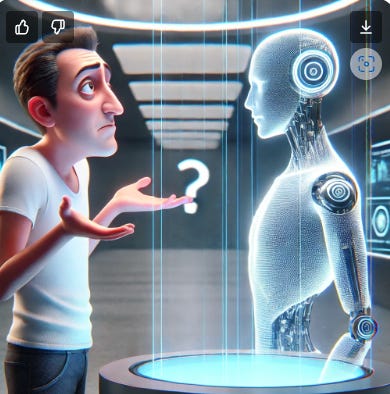50 Good AI Debate Resolutions
A bad resolution: “AI research and development poses an existential threat.”
As many of the readers of this blog know, I think debate and its associated skills are not only essential to help students prepare to live among hyperintelligent machines, but that debate is a great way to develop AI literacy. Between the US national tournament that is going on now and the many debate camps that operate this summer for those whose families can afford them, more than 10,000 K-12 students will be learning about AI before school starts by speaking and debating about it.
What follows is a list of 50+ debate resolutions/statements about AI that I think are “pretty good.” I say “pretty good” because good debate resolutions are very hard to write.
What makes a good debate resolution?
It should have clear, minimally ambiguous terms.
It should be simple but easily understandable.
There should be strong arguments on both sides.
It should be interesting and controversial.
Isn’t worded in a way that makes it easier for one side to win.
A well-worded resolution is critical to a good debate. A topic and great debaters are not enough. Let me give you an example as to why.
Last June (2023), four of the world’s greatest AI authorities — Max Tegmark, Yoshua Bengio, Melanie Mitchell, and Yann LeCun — debated about AI. Such an opportunity.
The resolution — “AI research and development poses an existential threat.” Awful.
Why was this resolution awful? Because as Bengio and Tegmark pointed out in the debate, if they could win any risk that AI is an existential threat, they should win the debate.
Mitchel & LeCun, who agree the risk is trivial, but not zero, argued that was a bad way to “interpret” the resolution. But other than a gut reaction, they didn’t have any suggestions for a more meaningful interpretation of the resolution. AI research and development does pose an existential threat, even if it’s trivial; I don’t know anyone who disagrees with this.
So, this is a really bad debate resolution. To draw a comparison, imagine if the debate resolution was, “Airplanes pose a risk of accidents.” Yes, the side advocating for the resolution would win.
This resolution turned what otherwise could have been a very good debate into a bad debate about the poor wording of the resolution.
In the list below, I offer what I think are some good debate resolutions.
I gave each resolution a difficulty level a based on my “gut” as to how difficult they would be for students to debate. Factors that influenced the difficulty level were related to how much one has to know about AI to get started with the topic and prepare in a reasonable amount of time, how much one would have to know about related issues, and how potentially complex the issues are.
1=easy 10=very difficult
While the resolutions do have various difficulty levels, I think they are at least debatable by anyone from more academically advanced middle schoolers to college students and professionals. The complexity of the debates will vary by age, knowledge level, and experience, but I think they are all debateable by everyone.
In the list below, what resolution or resolutions do you think would have been better for the Bengio et al. debate?
Value Resolutions
Resolved: AI is on-balance desirable. (1)
Resolved: When AI is capable of making better decisions, humans should be removed from the decision-making loop. (9)
Resolved: Professors have a moral obligation to teach students to write with generative AI. (5)
Resolved: AI should be used to monitor human productivity in the workplace (7)
50 more high quality resolutions below the fold.
Keep reading with a 7-day free trial
Subscribe to Education Disrupted: Teaching and Learning in An AI World to keep reading this post and get 7 days of free access to the full post archives.





